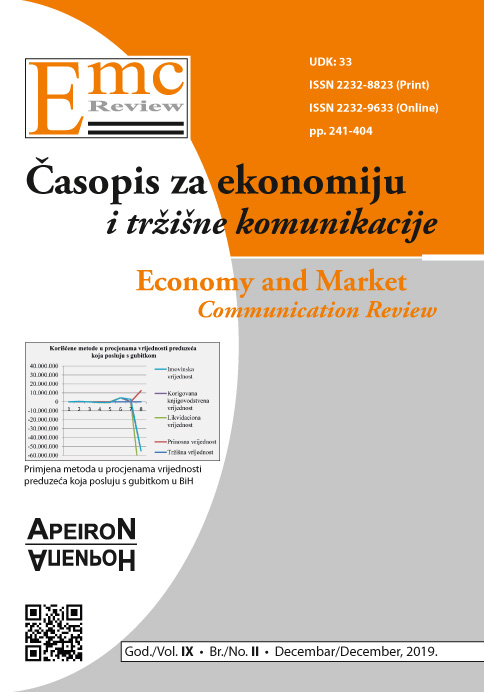NONLINEAR ADJUSTMENTS IN THE EXPORT-LED GROWTH HYPOTHESIS: RE-EXAMINING THE HUNGARIAN CASE
DOI:
https://doi.org/10.7251/EMC1902298NAbstract
This paper aims to examine the non-linear adjustments between exports and gross domestic product (GDP) in Hungary. In order to test the export-led growth hypothesis in the Hungarian economy this research analyses data from 1996Q1-2016Q4. Applying relatively novel approach to export-led growth hypothesis likely nonlinear asymmetric effect of exports and GDP toward their long-run equilibrium is tested. The results disclose a threshold cointegrating connection between the selected variables providing more insights into export led growth hypothesis. Unlike previous studies, research results reveal unidirectional and bidirectional causality in the long-run Hungarian exports-growth nexus which depends on the regime process with significantly different error correction adjustments in normal and stress regimes. Exports is found to be an engine of economic growth in Hungary for entire period but in times of stress when domestic demand contracts the role of exports in economic growth becomes more prominent and takes the basic form of export led growth hypothesis. Empirical results in this paper clearly points that threshold cointegration approach offers deeper insights than the linear error-correction model and might be the proper model specification to examine export led growth hypothesis.Downloads
Published
2020-03-03
Issue
Section
Чланци
